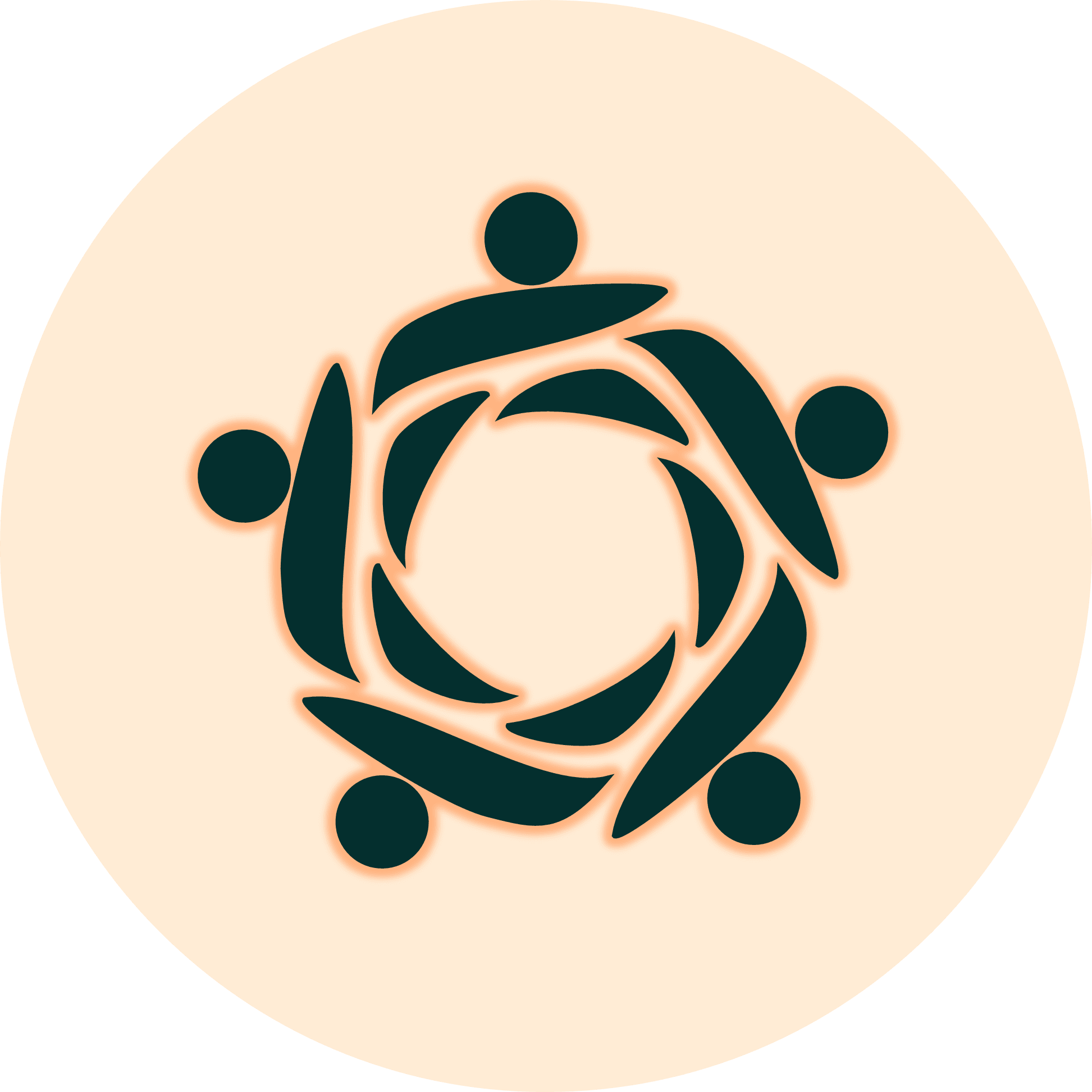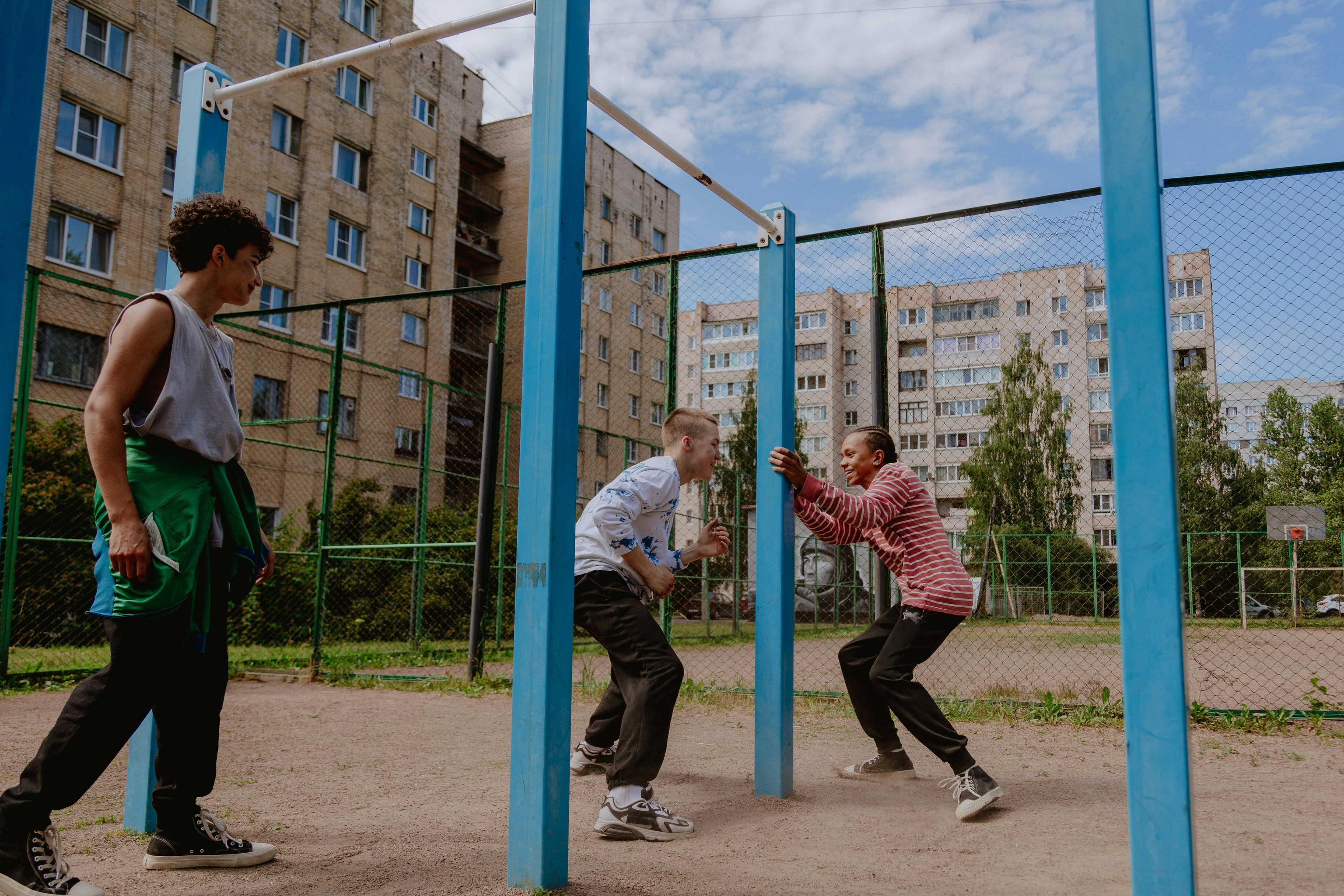Ligne directrice pour la communauté
Faites de la connexion sociale une priorité dans les politiques et pratiques
Les politiques et pratiques à tous les niveaux de gouvernance jouent un rôle crucial dans la promotion du bien-être social. De nombreux domaines politiques, qui ne semblent pas directement liés à la connexion sociale ou à la santé, peuvent avoir des conséquences profondes sur le bien-être social et communautaire.
- Il est essentiel d’évaluer les impacts sociaux des décisions politiques et de revoir les politiques existantes, tout en favorisant une collaboration intégrée entre les différents domaines politiques, afin d’analyser comment elles peuvent encourager ou freiner la connexion sociale.
- Investissez dans des programmes sociaux et des organisations qui soutiennent et renforcent les liens sociaux.



Considérations supplémentaires
Prioriser les liens sociaux dans les politiques et pratiques est essentiel pour favoriser une société où les relations saines et l’engagement communautaire sont au cœur du bien-être global. L’éventail des politiques qui influencent le bien-être social dépasse celles directement liées aux services sociaux ou à la santé, englobant une multitude de domaines qui, bien que moins évidents, ont des effets profonds sur le bien-être social et communautaire.
Une approche holistique, semblable au cadre des politiques de santé dans toutes les politiques (Health-in-All Policies), est cruciale pour intégrer la connexion sociale dans un large éventail de domaines politiques. Cette approche consiste à évaluer les impacts sociaux potentiels des différentes politiques afin de comprendre leurs effets sur la connectivité communautaire et la confiance sociale. Par exemple, les politiques d’urbanisme visant à concevoir des espaces publics, incluant des espaces verts, plus accessibles et accueillants peuvent encourager les rassemblements communautaires ou des interactions spontanées, renforçant ainsi les liens sociaux et la connectivité. À l’inverse, des politiques de transport qui négligent les besoins de tous les membres de la communauté pourraient limiter l’accès à des lieux sociaux pour certains groupes, réduisant ainsi les interactions sociales.
Les politiques d’emploi jouent également un rôle clé. Par exemple, les politiques soutenant des horaires de travail flexibles, le télétravail hybride et les congés parentaux peuvent considérablement améliorer l’équilibre travail-vie personnelle, permettant aux individus de consacrer plus de temps à leurs communautés et à leurs familles. De même, les politiques éducatives intégrant des programmes d’apprentissage socio-émotionnel peuvent doter les étudiants des compétences nécessaires pour établir et maintenir des relations.
Les politiques environnementales ont également un impact marqué sur le bien-être social. Les espaces verts en milieu urbain offrent non seulement des avantages écologiques, mais servent aussi de lieux communautaires propices aux interactions sociales et à l’activité physique, contribuant à la fois à la durabilité environnementale, à la santé des citoyens et à la cohésion sociale.
De plus, les politiques axées sur la connectivité numérique et les médias peuvent influencer le bien-être social en déterminant comment les communautés utilisent la technologie et interagissent entre elles. Assurer un accès équitable aux ressources numériques peut réduire les inégalités sociales, tandis que la régulation des médias pour prévenir la désinformation peut protéger la confiance sociale et la résilience communautaire.
En intégrant les liens sociaux dans tous les domaines politiques, les gouvernements et les organisations peuvent évaluer les impacts positifs et négatifs de leurs décisions sur la capacité des communautés à se connecter. Cette évaluation exhaustive permet de s’assurer que toutes les politiques contribuent à bâtir une société plus connectée, solidaire et résiliente. Investir dans des programmes sociaux et soutenir les organisations dédiées au renforcement des liens sociaux garantissent également que les individus et les communautés disposent des ressources nécessaires pour favoriser des connexions durables. Ensemble, ces efforts renforcent le tissu social de la population, tant à l’intérieur des communautés qu’entre elles, améliorant ainsi le bien-être individuel et collectif.
Ressources supplémentaires

Offre une feuille de route pour promouvoir la connexion sociale dans divers secteurs. Ce guide oriente les politiques, les systèmes et les stratégies pour réduire l'isolement social, en mettant l'accent sur une approche multi-acteurs visant à améliorer la santé et le bien-être grâce à la connexion sociale.

Ce réseau rassemble des organisations et des coalitions à travers les États-Unis, engagées dans la lutte contre l'isolement social, la solitude et pour la promotion de la connexion sociale.

Publiées par l'Initiative mondiale sur la solitude et la connexion, ces déclarations présentent un cadre pour combattre la solitude et favoriser la connexion sociale. Elles proposent des recommandations politiques, identifient les facteurs de risque et soulignent l'importance de solutions fondées sur des preuves.

La loi japonaise sur la promotion des mesures pour lutter contre la solitude et l’isolement
Adoptée en 2021, cette initiative législative vise à combattre l’isolement social et à promouvoir les connexions sociales. Elle prévoit la nomination d’un Ministre de la Solitude chargé de coordonner les politiques visant à réduire la solitude et à encourager l’engagement communautaire.

Une société connectée : une stratégie pour lutter contre la solitude
Cette stratégie nationale du Royaume-Uni définit une approche globale pour combattre la solitude, en mettant l’accent sur des interventions fondées sur des preuves, l’intégration des politiques et le soutien communautaire. Elle vise à réduire la stigmatisation liée à la solitude et à promouvoir les connexions sociales.

L'Initiative mondiale sur la solitude et la connexion
Cette coalition internationale œuvre pour promouvoir la connexion sociale et lutter contre la solitude à l’échelle mondiale grâce à la recherche, au plaidoyer et à la collaboration. Elle vise à influencer les politiques publiques et à mettre en œuvre des interventions efficaces pour améliorer le bien-être global.

Bibliothèque de ressources de l’Académie nationale pour la prescription sociale
Cette bibliothèque offre des outils, des guides et des recherches pour soutenir les initiatives de prescription sociale. Elle aide les professionnels de santé et les organisations à améliorer le bien-être social grâce à des soutiens basés sur la communauté.

Ces lignes directrices proposent 17 recommandations fondées sur des preuves pour aider les professionnels de la santé à prévenir, dépister et intervenir dans les cas d’isolement social chez les personnes âgées, améliorant ainsi leur santé physique et mentale.

Communautés socialement connectées : solutions pour l’isolement social
Proposé par Healthy Places by Design, ce guide offre des stratégies pour repenser les communautés afin de favoriser les connexions sociales et lutter contre l’isolement. Il met l’accent sur des espaces publics inclusifs, des solutions menées par la communauté et des politiques soutenant le bien-être social.

Formation PALS pour les pharmaciens sur la solitude
Ce programme de formation accrédité aide les pharmaciens à identifier et à gérer la solitude chez leurs patients. Il comprend des modules fondés sur des preuves et des conseils pratiques pour intégrer des pratiques favorisant le bien-être social dans les soins pharmaceutiques.

Basé en Alberta, ce centre se concentre sur la promotion des soutiens naturels — des relations mutuellement bénéfiques qui améliorent le bien-être. Il propose des ressources, des formations et des recherches pour renforcer les liens communautaires et améliorer la santé globale.

Le Samuel Centre for Social Connectedness (SCSC)
Le SCSC s’engage à lutter contre l’isolement social et à promouvoir la connexion sociale grâce à la recherche, au plaidoyer et à la collaboration. Il travaille en partenariat avec des organisations internationales pour encourager l’inclusivité et renforcer la résilience.

